J&J seeks US vaccine approval as hopes rise in virus fight
An advisory committee of the US Food and Drug Administration will meet to consider the application on February 26.
Pharmaceutical giant Johnson & Johnson asked US regulators on Thursday for emergency authorization of its single-shot Covid vaccine as Germany raised hopes of a potential easing of virus curbs, offering some encouraging signs in the fight against the coronavirus pandemic.
If approved, the vaccine would be the third in the hard-hit United States and offers logistical advantages because it doesn't require two doses and the deep-freeze storage needed for already approved shots.
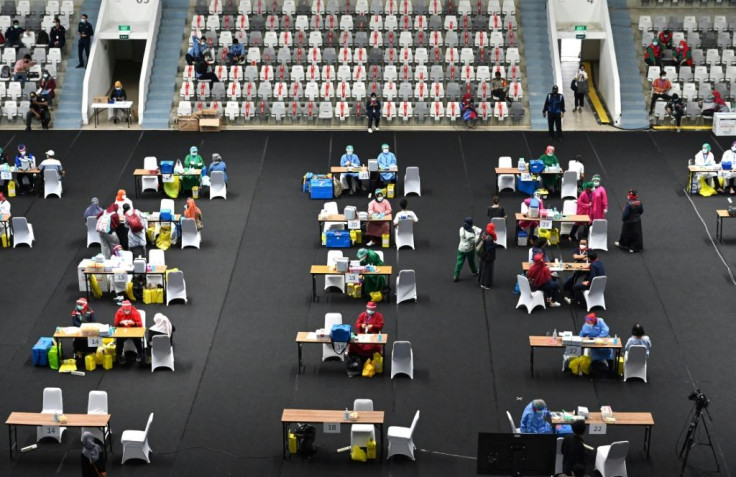
However trials showed the Johnson & Johnson vaccine does not protect as well against a highly transmissible virus variant first identified in South Africa, which is spreading rapidly around the world.
An advisory committee of the US Food and Drug Administration will meet to consider the application on February 26.
J&J says if its vaccine is authorized it is on track to deliver 100 million doses to the US by the end of June, a major supply of vaccine in a nation of some 320 million people.
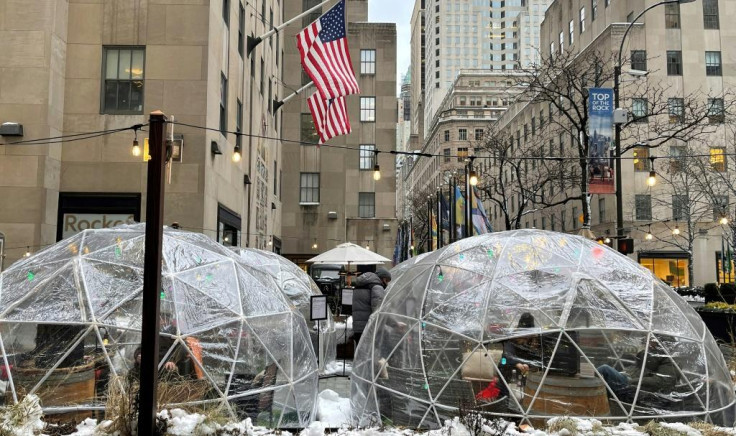
The Red Cross launched a campaign on Thursday to help get 500 million vaccines to people in poorer countries, as Iran received its first jabs from Russia.
Pressure is growing on richer countries to help in a global inoculation effort, with Red Cross chief Jagan Chapagain warning that the current unequal rollout "could backfire to deadly and devastating effect."
"It could prolong or even worsen this terrible pandemic," he said, promising to pour more than $100 million into an effort to distribute vaccines and encourage uptake.
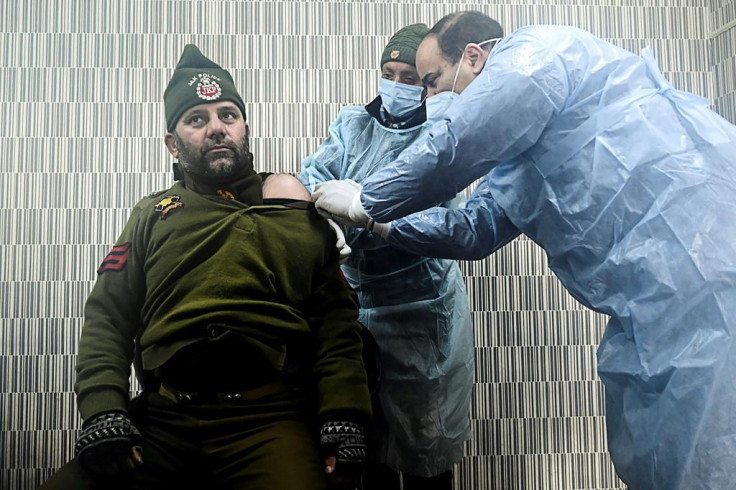
So far, more than 115 million doses have been distributed around the world, but the vast majority of those doses have gone to richer nations.
Experts warn that vaccines will only control the virus -- which has killed more than two million -- if the whole world is covered.
Otherwise, people will have to continue living under lockdowns with travel restrictions, curfews and closed businesses.
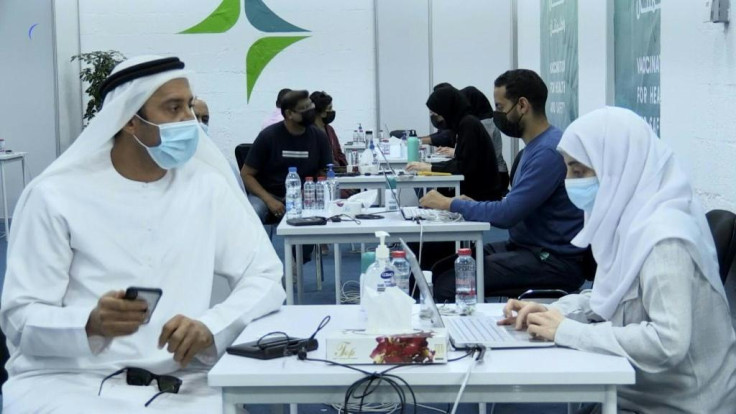
The economic devastation was once again underlined on Thursday with oil giant Royal Dutch Shell announcing more than $21 billion in losses and shipbuilder Hyundai Heavy Industries losing more than $700 million.
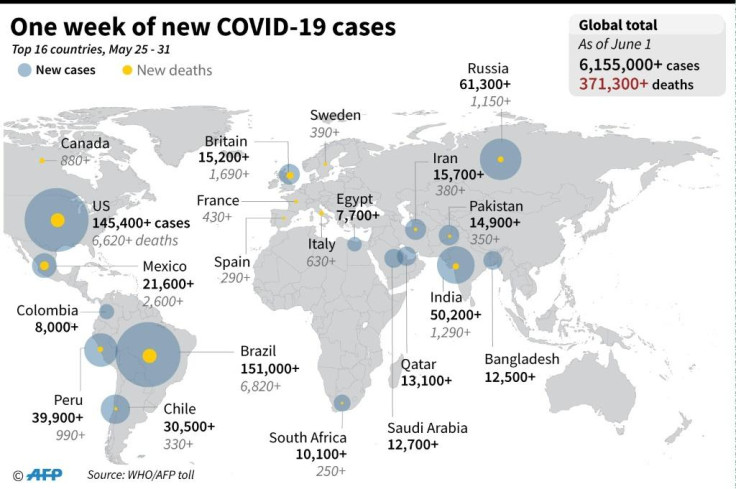
The pace of new infections has slowed around the world in recent weeks and some countries are beginning to consider reopening.
"We can't stay in this hard lockdown all winter. We would not tolerate that well as a society," German Health Minister Jens Spahn told local media.
On the other hand, wealthy monarchies in the Gulf including Dubai and Saudi Arabia are tightening their containment measures despite the inevitable economic damage.
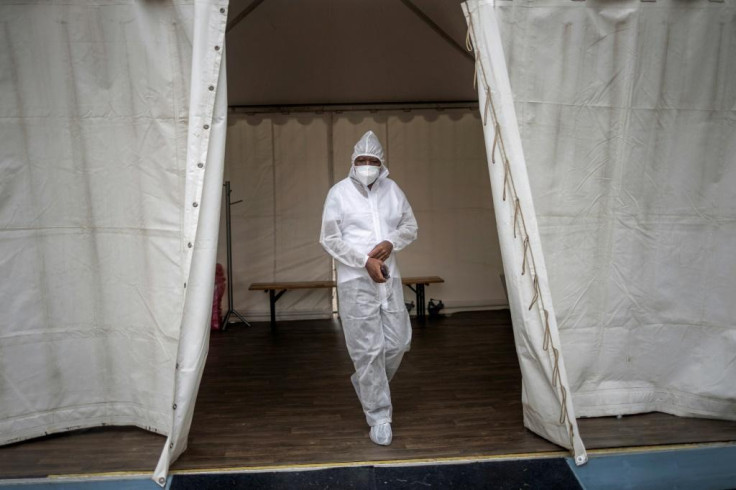
The World Health Organization has warned against relaxing the rules, with emergencies director Michael Ryan saying: "The rain has eased but the sun is not out yet."
As policy debate rages around how best to handle the current phase of the pandemic, the UN's health agency is investigating the origins of the virus.
"We're not going to come up with the ultimate full understanding of the origins of this virus, but it will be a good first step," WHO team member Peter Ben Embarek told AFP.
The team has visited an infectious disease lab in the city of Wuhan, which was accused by some US officials last year of allowing the virus to leak out.
But Ben Embarek said some of the theories surrounding the lab were more like movie plots, and promised to "follow facts" rather than "chasing ghosts."
Elsewhere, the focus is on vaccines -- developing them and getting them into people's arms.
The WHO-backed Covax initiative has laid out plans to deliver tens of millions of doses to poorer countries -- including North Korea, which has requested two million jabs despite insisting it has not suffered a single infection.
Britain's Oxford University, which co-developed a vaccine with drug firm AstraZeneca, has announced it will start research into mixing and matching doses to see if it results in greater protection.
And the relative triumph of Russia's Sputnik vaccine continues, with its first shipment arriving in Iran the same week its trial data was approved by The Lancet medical journal.
Iran is fighting the Middle East's deadliest outbreak but has ruled out using jabs developed by Western countries.
Few African countries have launched mass immunization schemes but there is already growing skepticism about the jab, fueled by conspiracy theories and distrust of elites.
"People told themselves this isn't an illness that affects black people," Mamadou Traore of Doctors Without Borders told AFP. "It is governments' job to dispute all this misinformation."
For South African health workers, battling the continent's worst outbreak, mass vaccinations remain a distant dream.
"We are also in the queue of dying," a health worker told AFP after experiencing the deaths of colleagues. "We are just waiting for our day."
Copyright AFP. All rights reserved.
This article is copyrighted by International Business Times, the business news leader





















